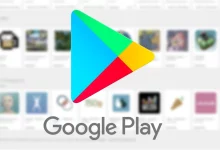Google’s Bard AI Chatbot: The Game-Changer in Code Generation and Debugging?

As technology continues to advance, it’s not surprising that artificial intelligence is making significant strides in various fields. Google’s Bard AI chatbot is one such innovation that is taking the world of code generation and debugging to the next level. With its ability to interpret natural language and generate code automatically, Bard is poised to change the way developers approach programming. In this article, we will explore the potential of Bard and how it could revolutionize the software development industry.
Google’s Bard AI Chatbot: The Game-Changer in Code Generation and Debugging? Based on a blog post from the Google Blog, the company says it is updating Bard with the ability to help people with programming and software development tasks, including code generation, code debugging, and explanation.
Based on performance from different tests, Bard, which was developed as a competitor to language models like ChatGPT, fell short of its AI counterparts. However, with its latest software development capabilities, Bard may be able to at least match the performance of ChatGPT and Claude on paper.
Google has announced that it will be expanding the software development capabilities of its generative AI experiment, Bard, to over 20 programming languages, such as C++, Go, Java, JavaScript, Python, and TypeScript. Additionally, users can export Python code to Google Colab and Bard can assist in writing functions for Google Sheets. With this update, Bard can now review and debug source code line by line, allowing developers to ask it to fix code that doesn’t work. Furthermore, Bard can translate code between programming languages and explain code snippets, making it a valuable tool for those new to programming.

While Bard’s new software development capabilities are exciting, it’s important to note that the tool is still in the early stages of development. As a result, Bard may sometimes present inaccurate, misleading, or false information with unwarranted confidence.
Promoted contents:
- Who is the founder of BBC?
- Toshiba Corporation: Who is the founder of Toshiba?
- Google Releases Android 14 Beta 3, With Platform Stability and New Features
- Who founded Nokia? Here is all you need to know
- Who is the founder of HTC Corporation?
- Fast Charging and Multiple Variants: Samsung’s Galaxy Tab S9+ and Tab S9 Ultra Unveiled
- Who is the founder of Realme?
- The Mobvoi TicWatch 5 Pro has been launched
- Rumours of the Galaxy S23 FE: A budget-friendly variant of the Galaxy S23
- The upcoming iOS 17 will add the ability to use your locked iPhone as a smart display
In the context of coding, Bard may generate code that appears to work but fails to produce the expected output or may provide code that is suboptimal or incomplete. It’s crucial to exercise caution and verify Bard’s responses carefully, testing and reviewing the code for errors, bugs, and vulnerabilities before relying on it.
Despite these challenges, Google believes that Bard’s new capabilities can be beneficial, enabling developers to explore new ways of writing code, creating test cases, or updating APIs. If Bard quotes extensively from an open-source project, it will provide proper attribution to the original source.
In addition to assisting with debugging, Bard can also aid in optimizing code by improving its speed or efficiency. Simply responding to Bard’s initial output with requests such as “Could you please make that code faster?” or “Find error handling clauses you might have missed” can prompt Bard to provide suggestions for optimizing the code.
Bard has already proven useful in various everyday tasks, including creating presentations, lesson plans, recipes, and workout routines. With its new software development capabilities, Bard has the potential to accelerate software development, inspire innovation, and assist in solving complex engineering challenges through the power of generative AI.








